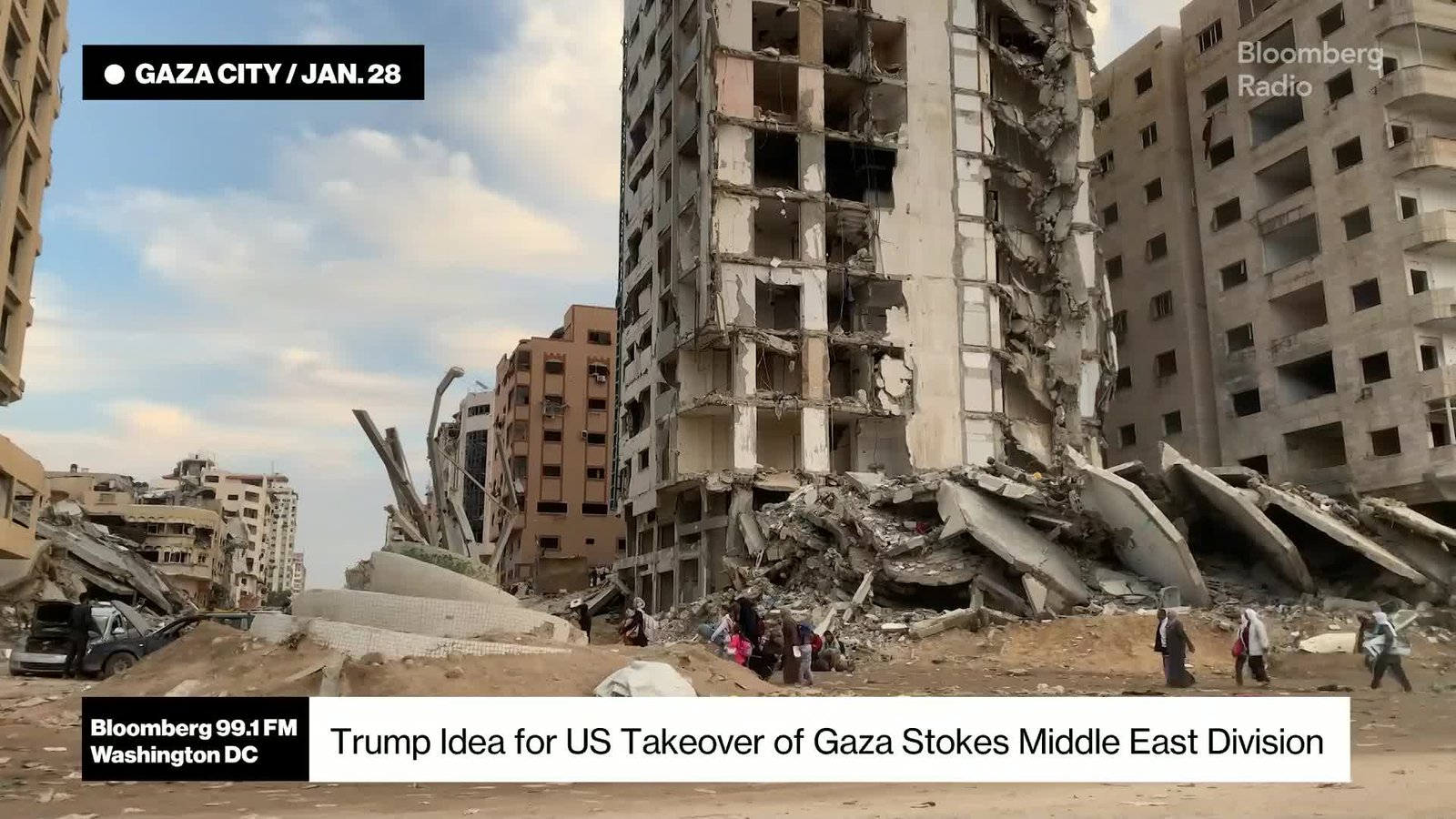- 00:00I do think that there’s a huge difference in the situation between his first term and this, you know, his second term. You know, in his first term, the interests of the Gulf states and Israel were more or less aligned, that their biggest concern was Iran, the threat from Iran. And so he was able then to get the Abrams accords. And after that, the Biden administration was able to talk to the Saudis about similar deals because there was no real impediment. And this time around, since October 23, when you got the you know, you’ve had the war in Gaza in between, and also the sort of interests of Saudi Arabia in particular have changed, much more focused on the economy and stability. Less worried about Iran. You now have a different situation. And I just think it’s going to be quite difficult to bring these different interests together where you’ve got the domestic political concerns of Saudi Arabia and the Gulf states now focused on their own populations and their view of Gaza. And it just makes it harder to bring everybody together. And I’m not clear that, you know, he’s got a plan for that. Dana, when we think about what is the plan, though, for Palestinians, you know, Marc’s column gets into, you know, Gaza is a demolition site. You know, it’s a mess. And to think about the Palestinians going back there, I mean, how do they live? There’s no infrastructure. So there needs to be some kind of rebuild. And you do wonder how you know, how this happens going forward. How do you see it playing out in terms of. Yeah. First of all, the estimates for the cost of rebuilding Gaza are upwards of $80 billion. And we’re probably talking about decades to clear out the rubble and rebuild Gaza. So there’s not really a temporary relocation of Palestinians. And based on past U.S. experiences, for example, post-conflict reconstruction in Iraq and then Afghanistan, the difference in Gaza is how concentrated the destruction is and the closed nature of the border. So civilians can’t move around when we’re trying to get ordnance, unexploded mines and bombs and the rubble cleared out. So this was always going to be a huge challenge. Just on on the on the remarks about the region, what’s totally different from Trump’s first term is the strategic nature of the Middle East. Iran is more vulnerable today than it ever has been because of Israel’s military strikes that have taken out its air defenses. Bashar al Assad has gone in Syria. There’s also a cease fire in Lebanon and a chance an opportunity to re-imagine a Lebanon without a stranglehold of Hezbollah governance. And the same thing in Hamas in Gaza. Trump can’t do this alone. He needs the Europeans. He needs the Arab leaders. And I think there’s an opportunity here for four different leaders to bring things to the table. It’s not only about Gaza sticking on Gaza. It does raise the question of what the future of Gaza is if this ceasefire holds, if and when the war does end. What is the plan for Gaza if the United States does not go through with the plan that President Trump said yesterday at the White House on the current trajectory, without anything other than what we see right now, Gaza is probably going to become something like Mogadishu on the Mediterranean. There’s no non Hamas alternative to governing Gaza. We’ve seen that there’s plenty of Hamas guys who have come out of the tunnels, put their uniforms back on, are distributing humanitarian aid and telling people, we’re going to help you get back to your homes and we’re going to help you rebuild. So that means that Hamas reconstitutes it regains governance over Gaza and its remaining leaders have already threatened to do October 7th, over and over and over. Yeah.
Stream Schedule:
U.S. BTV+
No schedule data available.
